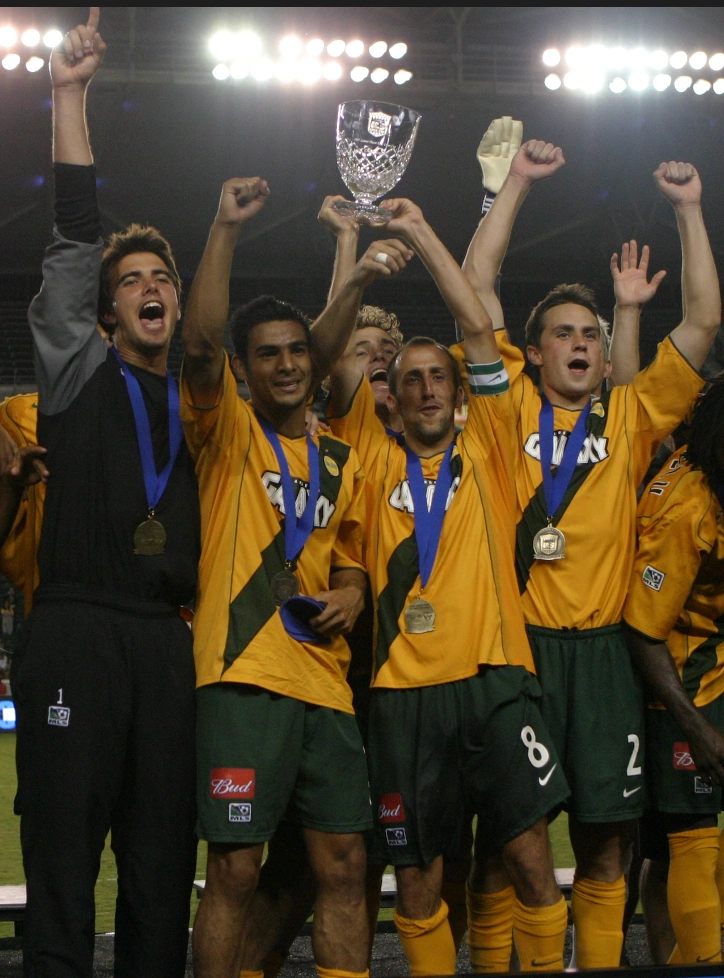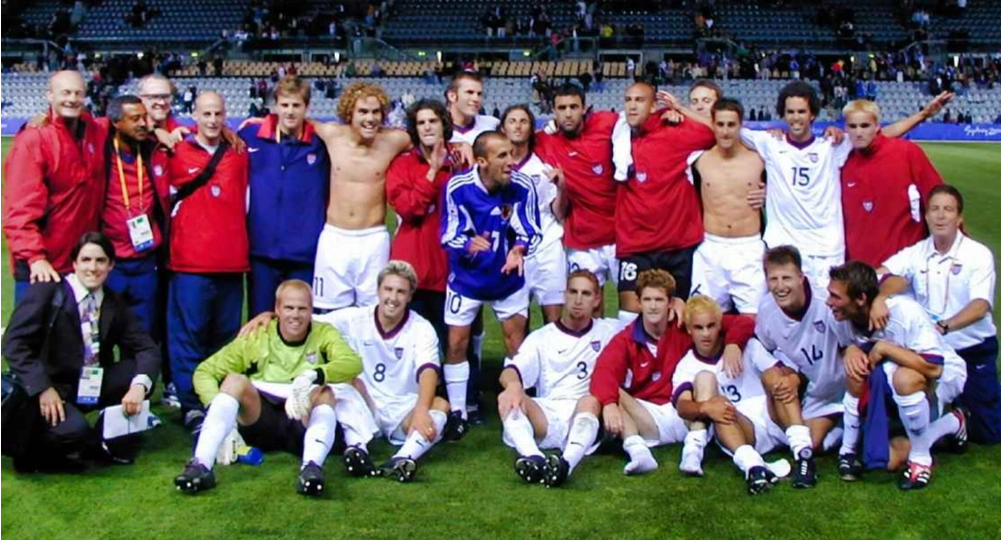
Some players are born into the game, others are built through it. Peter Vagenas is both. His journey from the youth fields of Pasadena to representing the United States at the 2000 Olympic Games and later guiding the LA Galaxy to a historic double stands as one of American football’s most complete and inspiring success stories. I first met Pete when he was only nine years old. Even at that young age, his intelligence, discipline, and quiet confidence set him apart. As a youth player, he showed early promise and an uncommon maturity. He played for Foothill Flyers, Pasadena Exiles, and AGSS (American Global Soccer School), winning championships at nearly every age group. I had the privilege of coaching and mentoring him throughout his youth career across these clubs, where his work ethic, intelligence, and leadership consistently stood out. During the same period, Pete captained his high school team, St. Francis, to a C.I.F. Championship, demonstrating not only his technical excellence but also his growing influence as a leader. With AGSS, he travelled across Europe to face elite academies such as Ajax, PSV Eindhoven, Feyenoord, Leicester City, Nottingham Forest, Benfica, and Arsenal, measuring himself against some of the best young talents in the world. Playing international matches as an American youth player was rare in those days yet essential in accelerating development. These experiences broadened Pete’ footballing intelligence, teaching him about the speed, standard, and sophistication of the game shaping him into the modern midfielder of his generation.
What separated Pete wasn’t just his technical quality it was his ability to make everyone around him better. Subtle and often unnoticed by fans or journalists, he was the favorite of teammates and coaches alike. His awareness, precision, and tempo management set him apart; he found free players effortlessly and delivered passes with speed and accuracy rarely seen among American players of his era. In his late teens, Pete also began coaching younger children within AGSS an experience that deepened his understanding of the game and his sense of responsibility as a leader. That maturity shone through at UCLA, where he led the Bruins to the NCAA National Championship in 1997, earning recognition as the team’s Most Valuable Player that season. He later served as team captain during his senior years, continuing to inspire those around him.

On the international stage, Pete played a crucial role for Team USA at the 2000 Sydney Olympic Games, leading the team with goals in the tournament and helping the side to an impressive fourth-place finish the best Olympic performance in U.S. men’s football history at the time. Pete’s professional career began with the LA Galaxy, where his leadership and intelligence quickly elevated him to captaincy. He helped the club capture its first international title, the 2000 CONCACAF Champions’ Cup, and later led the team to a historic double in 2005, winning both the MLS Cup and the U.S. Open Cup. That same 2005 season was a special chapter for me personally as Assistant Coach of the LA Galaxy, I was reunited with my former youth player. To see Pete, once the quiet prodigy of Pasadena, now wearing the captain’s armband and lifting trophies at the highest level of American football, was deeply fulfilling.
Over the course of his MLS career, Pete went on to play for Seattle Sounders, Vancouver Whitecaps, and Chivas USA, sharing the pitch with global stars such as David Beckham in Los Angeles and Freddie Ljungberg in Seattle. Yet through it all, Pete remained grounded a professional defined not by celebrity but by service, work ethic, and loyalty to the game. After retirement, he transitioned naturally into leadership off the field helping to build and direct the LA Galaxy Academy, which has since produced some of the most promising American talents, and later serving as the club’s General Manager.

Born in a Greek family, Peter Vagenas embodies the Greek-American dream through football a story of discipline, gratitude, and resilience. His journey reminds us that greatness is not measured only by medals or matches, but by how one uplifts others and gives back to the game that shaped them. For me, witnessing Pete’s transformation from a talented nine-year-old in Pasadena to Olympian, champion, and football executive has been one of the most rewarding chapters of my life. His pathway represents what is possible when vision, humility, and perseverance meet and why, in football as in life, belief at an early age can shape destinies.
Written by Afshin Ghotbi (November 2025)
